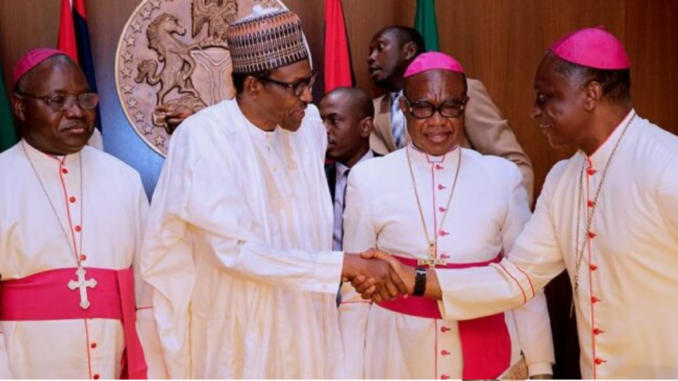
In the heat of the 2018 killings by criminals, I received a deluge of broadcast messages steeped in conspiracy theories of how the government was backing certain criminal groups in their festival of bloodletting. According to one of the well-noised fibs, the government was paving the way, through militias, for the occupation of Nigeria and for the domination of ethnic nationalities by the Fulani.
One notorious conspiracy theory claimed the killings were the surreptitious agenda of a powerful clique in government who were working at conquering territories and forcibly converting Nigerian locals to Islam. Another canard said the government was contriving how to take over lands of citizens and hand them over to the Fulani by stoking the crisis. Too many lies.
Doctored videos and photos rippled on social media purportedly showing the military dropping arms and supplies from helicopters to bandits. The criminals were alleged to be enjoying protection as ancillaries of the government.
Really, conspiracy theories in Nigeria come with the ethnic origin of the leadership of the day. The administration of former President Goodluck Jonathan, who is Ijaw and from the south-south, was accused of sponsoring Boko Haram to depopulate the north. Murtala Nyako, former governor of Adamawa state, at a meeting with Susan Rice, former US national security advisor; US officials and some northern leaders, at the White House on March 8, 2014, said Jonathan was eternalising the Boko Haram crisis to whittle down the voting power of the north ahead of the 2015 elections.
Azubuike Ihejirika, former chief of army staff, who was the first army chief of Igbo extraction since the civil war of 1967-1970, was also accused of sponsoring Boko Haram as a way to exact vengeance for the perils the Igbo suffered in the war. He was alleged to be deploying arms and ammunition to the insurgents. Nigeria has always been fertile with conspiracy theories.
Since 2017, the Buhari administration has been accused of angling to Islamise and Fulanise Nigeria. In fact, the allegation was so intense that some Nigerians wrote to foreign bodies asking them to sanction the country. In September 2017, the Christian Association of Nigeria (CAN) claimed the government’s issuance of N100 billion Sukuk bonds (an instrument of Islamic financing) was an attempt to pawn the country to Arab nations. According to the association, the government was accelerating the process of islamising the country.
Islamic financing is celebrated globally for its interest-free and equitable fundamentals, and has been advanced as a better financing alternative for developing countries. Ironically, the Sukuk funds over which CAN raised a hue and cry have been used to finance the construction of a road (Kolo-Otueke-Bayelsa Palm road) in former President Jonathan’s hometown. 44 other road projects have also been funded with Sukuk.
Instead of uniting against the bogey of kidnapping and banditry, Nigerians were divided – and some coloured the tragedies in ethnic complexions. Ethnic knights rose up, threatening the survival of the country. Nigeria was in chaos. Only the heavens know how the country escaped the plunge to certain doom.
And all of this for what? Politics? Because the president is of Fulani ethnic origin? I believe our predatory and pernicious politics was at the heart of the labelling and conspiracy theories. It is nearly seven years in the life of the Buhari administration and about a year to the next presidential election, but the conspiracy theories of Islamisation and Fulanisation appear to be vapourising. Perhaps because the government is inching towards the departure lounge and the ruses no longer serve any political purpose.
The Buhari administration is at its twilight, but Sunday is still a ‘’holy day’’ for Christians. The foundational Christian elements on which Nigeria is built are still the same – and Islamisation has not happened. There is no Fulanisation or Islamisation of the civil service, the military or anywhere. It has been all propaganda.
As I have always said, Nigeria is a Christianised country. This is largely due to British colonialism. Islam had made an in-road into northern Nigeria by the 11th century – before Uthman Dan Fodio’s Jihad of 1804, which was the climactic denouement. Borno was among the first disciples of Islam in the 11th century. There was a literate population, a well defined system of government and codified laws. But the British yanked off a prodigious part of this heritage, imposing its own systems which were fore-grounded in Christian values and practices.
We have become so used to our Christian ways that any blip of the obverse sends us, top gear, into panic and revulsion.
President Buhari has left the orthodoxies the way he met them – and by dint of that, I think he has contributed in the Christianisation of Nigeria.
By Fredrick Nwabufo; Nwabufo aka Mr OneNigeria is a writer and journalist.
Twitter/Facebook/Instagram: @FredrickNwabufo


Be the first to comment